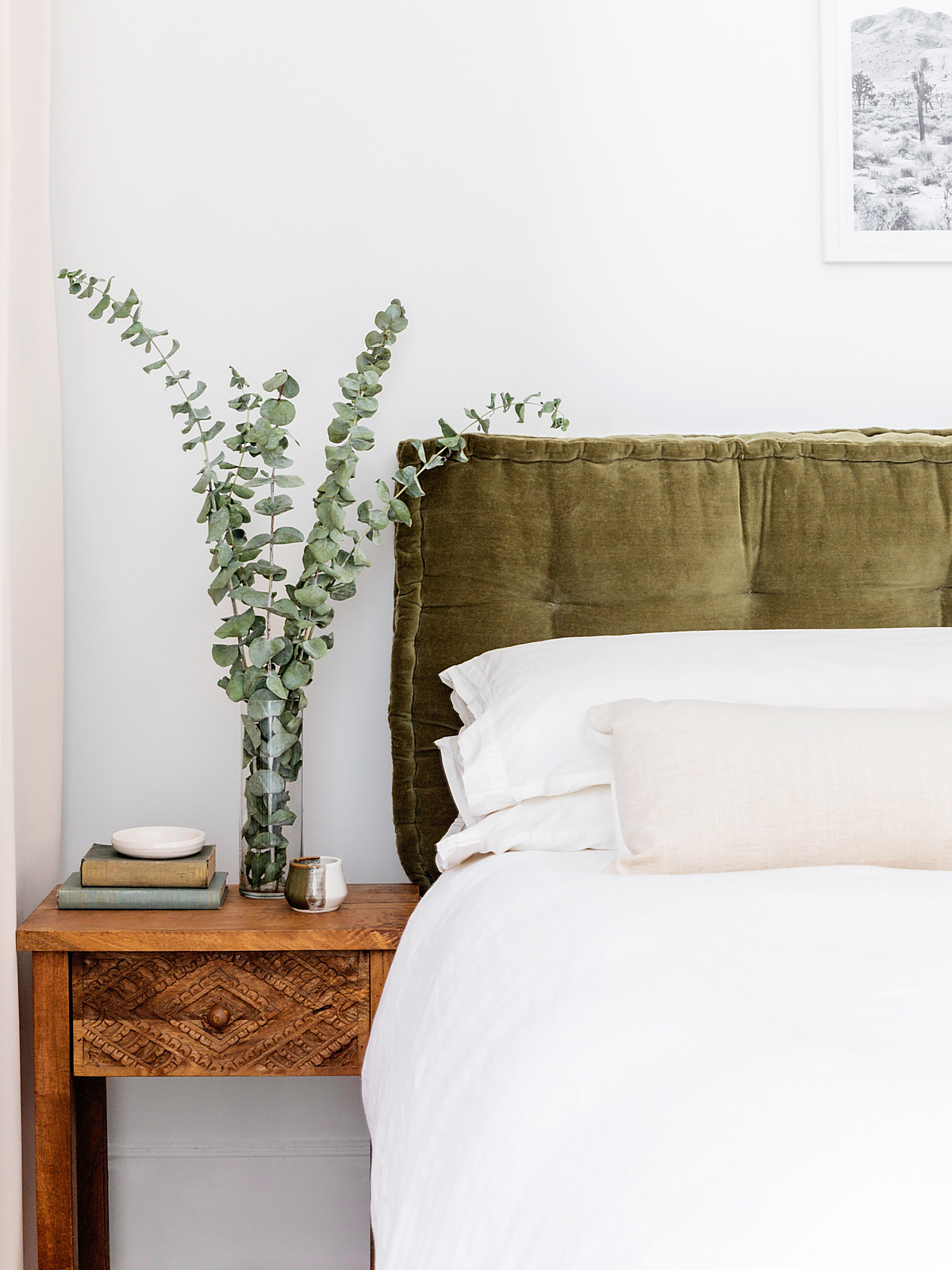We may earn revenue from the products available on this page and participate in affiliate programs.
When Dan Gartenberg, Ph.D., asks me to describe my nighttime routine, I am more than prepared: I’ve spent the past year writing The Wind Down, Domino’s franchise all about the things people do before bed. Through my interviews with cool people (Lili Reinhart! Sophia Roe!), I’ve absorbed a few tips here and there, and I’ve even formed my own personal nighttime habits.
But, of course, there’s a reason why I’m talking to Gartenberg: I haven’t been getting the best sleep possible. And he is, to put it colloquially, a sleep doctor.
As the founder of Sonic Sleep, Gartenberg offers one-on-one coaching sessions where he diagnoses, as precisely as possible, why patients might not be getting quality shut-eye. Over a 50-minute phone call, we discuss my stressful dreams (which wake me up in the middle of the night), occasional insomnia (my late-night Instagram spirals sometimes leave me feeling restless), and constant grapple with my alarm (I’ve hit snooze as many as five times in one morning). Here’s what I learned.
Don’t force an early bedtime
The good news: I don’t actually have insomnia, which Gartenberg explains means someone spends less than 85 percent of their time in bed asleep. But I do still, once or twice a week, find myself tossing and turning for 30 minutes or more. The solution he recommends is fairly simple: If I know that I’m inevitably not going to fall asleep, take a little extra time to take a bath, read, or meditate until I can naturally snooze. “Sleep isn’t about pushing harder and harder,” he says. “It’s about being able to let go.”
Think nice thoughts
I’ve been having a peculiar sleep problem, one that I’ve been detailing my coworkers about for months: My dreams have gotten to be very vivid, often stressful, and sometimes waking me up in the middle of the night. While Gartenberg admittedly can’t fix any stress that’s causing these visions (climate change is beyond his pay grade, unfortunately), he does have a few recommendations for how I can keep my anxiety about rising ocean temperatures and impending deadlines alike away from my bedroom. I just have to remember that it’s all in my head.
That’s why he tells me to consider a pre-slumber gratitude practice or to journal for a bit to keep my thoughts as pleasant as possible. “It’s like giving your brain a shiny object,” Gartenberg says. I already read before lights out, but admittedly, Margaret Atwood isn’t exactly relaxing, so I decide to keep some choices for daylight only. (Sorry, Margaret!)
And as for those Instagram rabbit holes? They’re best off avoided altogether, as I’ve realized they can draw me into a downward emotional spiral. Plus, the blue light from my phone makes it even harder to eventually fall asleep.
Snooze should not be an option
When Gartenberg asks me why I hit snooze several times over the course of 30 to 45 minutes each morning, I don’t really know what to tell him. Is this not normal? Turns out, it’s not. But when I tell him that, simply put, I must hit snooze, I’m shocked by his response: Ideally, I shouldn’t even be using an alarm at all.
It’s confounding, but he explains: If you keep a regular schedule (like I do, in general), your body will naturally wake up at the same time each day, especially if you are getting the amount of sleep you need. I’m preparing myself for failure (or at least, a groggy morning) by setting my alarm extra-early with the intention of just hitting snooze. So why won’t I just set my wake-up time a little later?
I’m hesitant, but I change my 7 a.m. alarm to a 7:20 a.m. alarm the next day, and when my eyes open at 7:19 a.m., my first thought is, “You’ve got to be kidding me.” Gartenberg, of course, was right. I just didn’t trust my body enough to believe him.
That doesn’t mean I’m ready to wean myself off my alarm just yet. He explains that they’re still helpful when your schedule shifts (like if I have a morning coffee meeting that starts 30 minutes before my typical work day), and for me, they offer a lot of peace of mind. If I were to start setting my alarm earlier, that means I should go to bed earlier to get the approximate seven-and-a-half hours of sleep that I usually require to be a functional human.
It’s okay to be a night owl
The problem is really with society, Gartenberg assures me, and I’m quick to agree: The typical workday is geared toward early birds, but I’m a certified night owl. I ask him if there’s any hope that I can change my ways, and yes, there is: The real key is to adjust my entire day, not just my nighttime routine. Anytime I’ve tried (and failed) to go to bed before I usually do, I’ve just turned off the lights earlier, when really, I should have eaten dinner earlier and showered earlier and had lunch earlier and exercised earlier. Instead, I need to focus on my whole day to shift my entire circadian rhythm—not just put my head to the pillow and hope for the best. And now, with a better understanding of how I can get that shut-eye, I can finally rest easy. Or at least easier.
See more stories like this: Sure, Sleep Sprays Smell Great—But They Can Actually Help, Too Do You Actually Need a Humidifier? What Happens to Your Body When You Wake Up at 5 a.m. Every Day
